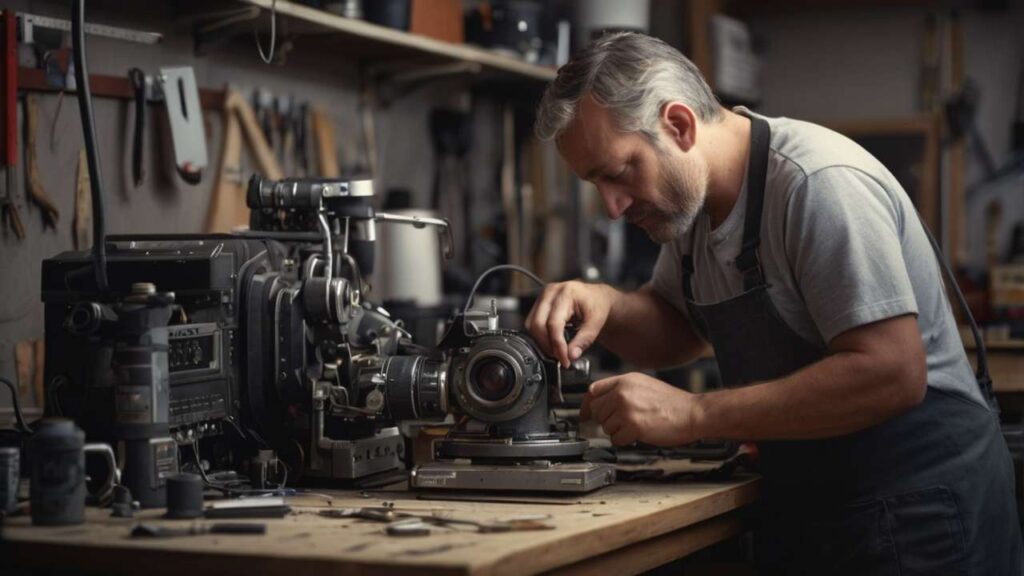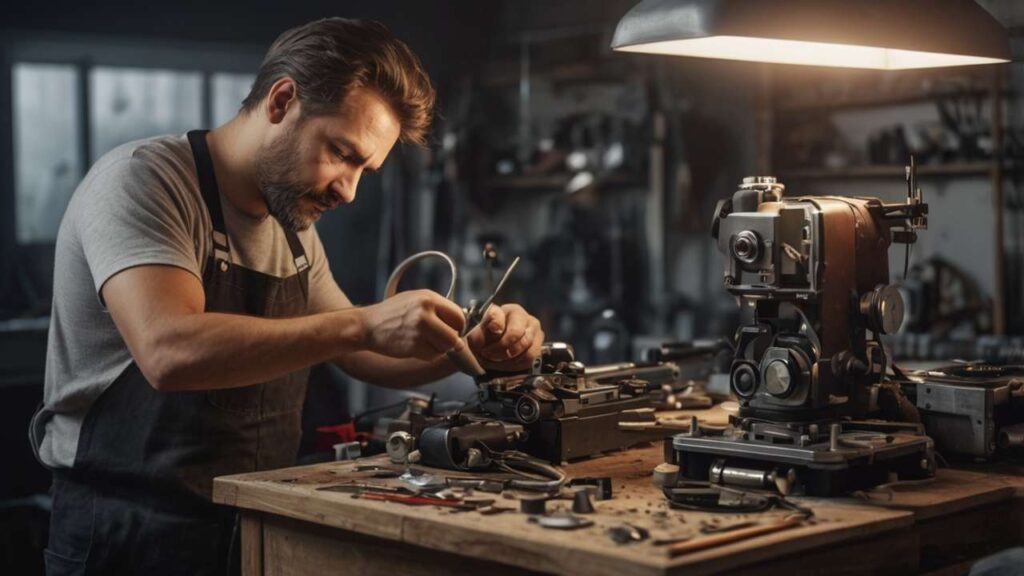It has often been said that a broken camera feels like losing a piece of memory itself. I couldn’t agree more. For many people, photography is not just about capturing beautiful sceneries—it’s about preserving personal stories. That is why a Camera Repair Service in North Carolina has been considered by many as a lifeline when accidents happen. Whether it’s a cracked lens, a shutter jammed halfway, or that mysterious error code that suddenly pops up on the LCD screen, reliable repair can’t be underestimated.
A professional touch is often the difference between giving up on an expensive gadget or restoring it back to life. Trusted technicians across the state have been handling everything from basic cleaning to complex circuit board replacements. Honestly, I’ve been guilty of trying to fix my camera with a YouTube tutorial once, and I ended up making it worse—tiny screws everywhere on the floor. That’s when I realized why expert service exists.
Cameras are delicate, yet many people (me included) sometimes forget that until it’s too late. The process of repairing them isn’t just about changing a part. It involves testing, calibrating, and in some cases, micro-soldering parts so small that even a shaky hand can ruin them. This is why choosing a reliable and professional repair service in North Carolina becomes essential for anyone serious about keeping their memories safe.
Why Quality Camera Repairs Matter
Most of us spend hundreds, sometimes thousands of dollars on high-end DSLRs, mirrorless cameras, or even specialized film gear. Throwing them away just because something stops working doesn’t make sense. I’ve seen a friend of mine consider replacing his entire lens setup just because autofocus wouldn’t lock properly. The funny part? It was just a tiny motor replacement, something that an experienced technician handled in less than an hour.
In my experience, reliable camera services are not only about fixing the problem—it’s also about preserving the lifespan of your gear. Think of it like visiting a doctor. Preventive care often saves you from bigger disasters later. That’s why trusted repair shops usually offer cleaning, sensor dust removal, and even firmware updates.
According to some photography equipment specialists, 70% of damage they see could have been prevented by simple maintenance, like not storing a camera in a damp room. One expert once said, “Moisture is the silent killer of electronics. Cameras are no exception.”
Common Problems That Need Professional Help
After speaking with photographers and hobbyists across the state, I noticed some patterns. The most common problems that push people to seek the best camera repair service in North Carolina include:
- Shutter malfunctions – sometimes it gets stuck, other times it doesn’t sync properly.
- Lens issues – scratches, fungus, or focus motor breakdowns.
- Sensor dust – it ruins shots, especially at higher apertures.
- Battery connection faults – loose terminals or failing circuits.
- Water damage – the most heartbreaking but surprisingly repairable if handled fast.
Each of these requires different tools and expertise. For example, removing fungus from a lens often involves using ultraviolet light and special cleaning solutions that regular households simply don’t have.
I once thought lens fungus could be wiped with alcohol—don’t ever do that! It left streaks and only spread the problem further. That’s when I fully appreciated the precision and patience of technicians.
How the Repair Process Usually Works
When I brought my DSLR to a service center, I expected them to just unscrew the back panel and “fix it.” But what actually happened was much more systematic. Here’s the general workflow I’ve seen:
- Initial Inspection – checking for physical damage, loose screws, or moisture signs.
- Diagnostic Testing – using software and special devices to simulate shots and functions.
- Component-Level Repair – this could mean replacing a shutter curtain, soldering circuits, or calibrating the focus system.
- Cleaning and Preventive Care – sensors get carefully cleaned using swabs and fluids that cost more than I thought.
- Final Calibration – test shots are taken to confirm everything works perfectly before handing it back.
The tools? They range from precision screwdrivers smaller than your fingernail, anti-static mats, to infrared heat stations for delicate soldering. The spare parts are often OEM (original manufacturer) sourced, but some trusted shops also keep high-quality refurbished spares for budget-conscious users.
Case Study: A Water-Damaged Camera Saved
A close friend of mine dropped his mirrorless camera into a lake while hiking in Asheville. At first, it seemed like a lost cause—the screen was black, and the buttons unresponsive. But he rushed it to a professional repair service the same day.
They disassembled the camera, dried the circuits in a controlled chamber, replaced corroded connectors, and within two weeks, he was shooting again. The cost? Less than a third of a new camera body.
This experience taught me that not all hope is lost when disaster strikes. Trusted technicians can do wonders if given the chance quickly.
Preventing Future Damage
As much as repair services are reliable, prevention is always better. Here are a few practices experts always recommend:
- Store cameras in a dry box with silica gel to avoid fungus.
- Regularly clean lenses with microfiber cloths and proper solutions.
- Avoid changing lenses in dusty or windy places.
- Keep firmware updated to fix software glitches.
- Invest in padded bags to reduce accidental shocks.
I know—it sounds basic, but I’ve skipped these myself out of laziness, only to regret later.
For more insights on electronic maintenance, I found this guide on electronic repair services very useful.
Professional Insights
I reached out to a few specialists in the field of electronics repair. One technician with over 15 years of experience shared, “People underestimate calibration. Even a tiny misalignment in the sensor can throw off an entire photo shoot. That’s why professional adjustments matter.”
Another repair expert mentioned how North Carolina’s humidity often accelerates lens fungus and battery corrosion compared to drier states. Simple storage solutions, he said, could save customers hundreds of dollars in repair fees.
For readers who want to understand broader aspects of gear maintenance, I recommend checking out resources like Digital Photography Review which frequently discuss technical gear issues in depth.
Internal & External Learning Sources
If you’re interested in related repair knowledge, you can also explore articles like audio equipment repair tips or general professional repair service guidance. Even though they focus on other electronics, many principles are surprisingly similar.
For further external reading, the B&H Explora blog often posts guides on camera maintenance and troubleshooting that are practical for both amateurs and professionals.
Frequently Asked Questions
Q1: Is repairing my old camera worth it?
Yes, in most cases. If parts are available, repairing can cost significantly less than buying new. Plus, older models sometimes have a unique character that new ones don’t.
Q2: How long does a typical repair take?
Minor fixes can be done in a day, but complex issues like circuit board repair might take up to two weeks.
Q3: Can water-damaged cameras always be saved?
Not always, but quick action increases the chances. If the circuits haven’t corroded too far, recovery is often possible.
Q4: Should I try DIY repairs?
Unless it’s something basic like cleaning dust, I wouldn’t recommend it. The risk of making things worse is high.
Q5: Do repair services offer warranties?
Most trusted providers do, usually between 30 to 90 days for the repaired part or service.
At the end of the day, cameras are not just gadgets. They’re memory keepers, storytellers, even tools of livelihood for many. That’s why finding the best Camera Repair Service in North Carolina isn’t just about convenience—it’s about trust, professionalism, and reliability.
I’ve learned the hard way that expert hands are irreplaceable when dealing with fragile electronics. From lens fungus to unexpected water drops, having a reliable technician on your side means one less worry when you’re out shooting.
If you’ve ever had a camera breakdown, or maybe you know someone struggling with it right now, share this article with them. Use the share buttons below—it might save them from making the same mistakes I did.


